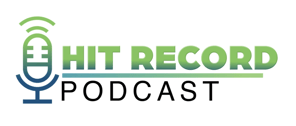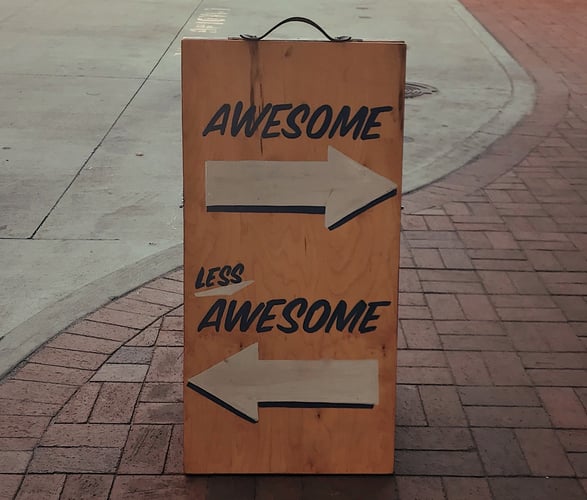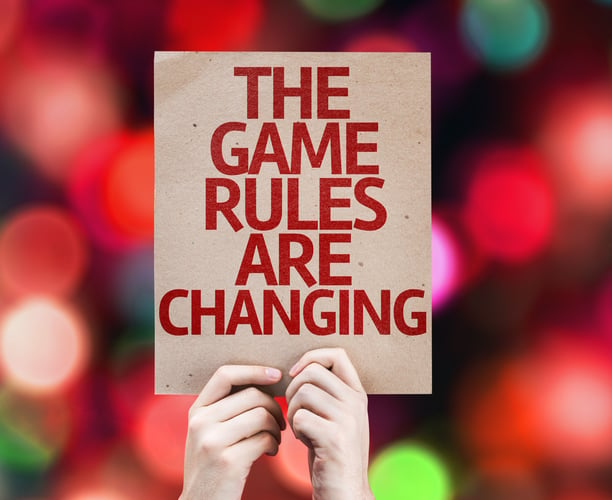Episode 46 - Content vs. Copywriting for Banks & Credit Unions


Don't Miss An Episode, Subscribe Now

What is the difference between content writing and copywriting? Content writing is used to inform. It is all of the details that you're trying to educate someone on. Versus copywriting, which is meant to persuade. It's going to be your sales and how you grab their attention, speaking to those emotions.
In this episode, the FI GROW team discusses best practices and case uses of content writing and copywriting to convert customers for your bank or credit union.
Transcription:
If you're looking for best practices for your bank or credit union, join us while we talk all things sales, marketing, and strategy for financial institutions. Let's make it happen with FI GROW Solutions..
Hi there. I'm Meredith Olmsted, CEO and founder of FI GROW Solutions. We are an inbound marketing and sales agency, and we work exclusively with banks and credit unions. And I am here with Kristin Mock. She is one of our inbound marketing specialists here at the agency. Say hi, Kristen.
Hi.
And we were just having an awesome conversation about different kinds of content. It's come up in lots of different places recently when we've been working with clients, and working internally on our own content. So she and I were talking about the difference between content writing and copywriting. And I was like, "Oh, I don't really study this that much in school." So Kristen was really familiarizing me with the differences and the purpose of both of them when it comes to us working with clients. So I guess the the first thing, so I was like, "Let's push record. Maybe this is a good topic for everybody else to hear."
So first thing is defining our terms, so we can really have an informed conversation about this, is what do we mean by content marketing, or content writing, versus copywriting. So can you summarize this for us, Kristin, really quickly?
Sure. So I think the easiest way to talk about this is content writing is used to inform. It is all of the details that you're trying to educate someone on. Versus copywriting, which is going to be meant to persuade. It's going to be your sales and how you grab their attention, speaking to those emotions.
Okay. So in terms of the purpose, so we understand, I have to get my head around ... All right, but give me examples, because I still want to make sure I understand. So for copywriting, that's the stuff that's almost advertising. Really get your attention. So it would be in digital ads or other kinds of ad placements, emails, social media? Is that what you're thinking?
Yeah, absolutely. Anything in an ad, anything short, quick, just a little grab your attention, make you want to learn more, make you want to just dive right in.
Okay. So spur you into taking an action, but a quick action. "Click here to learn more," kind of thing. Or, "Click here for information," or something like that. Whereas content is deeper. Blogs, white papers, copy on a landing page, the content that you might see on a landing page. Website pages. More in depth content on a website page. So why are we talking about it then? What's so tricky? I don't understand.
Well, it's a very fine line between the two. And I think even when you are looking for someone to write copy, you'll see a lot of confusion in people looking for a content writer versus a copywriter, because it they sound similar and it's very hard, I think, sometimes to tell the difference. And in some cases you have to use a combination of both, which just makes it even more confusing.
Yeah, all right. And the main reason why this has been coming up for us lately is because of crafting content on website pages, specifically. Really that's kind of how Kristen and I got on this topic in the first place. It has to do with our own website, but also when we're building website pages for clients and landing pages for clients. So on a website page, and we work in financial products and services, super complicated most of the time, they have a lot of nuance, a lot of features and that kind of thing. So explain, or let's unpack why is both copywriting and content writing important on a website page?
Because the main purpose of your website page is to make a sale, in most cases. You want them to convert, to do something, take an action, and that's copy. But they're there looking for information and you need to deliver that information. So when someone lands on your website page, you need to tell them what you're selling and everything about that product. In our case, you're looking at rates, you're looking at all of the features of that product, you're looking at terms, and that all needs to be very clearly laid out on your website page, and that is all content. But then once they see all that information, what are they supposed to do? Well, they're supposed to apply now, they're supposed to open an account. So you need that kind of, "Start this now, start this today, buy your dream boat, your dream house," whatever it is. So you have to have a little delicate balance there of both content and copywriting.
Got ya. Yeah, and then it gets even more complicated when you have to introduce the elements of SEO. Because search is really also something else that has to drive all of the content and copy, really, of your website pages. Because if people don't find those website pages, no matter how beautifully written they are and how persuasive they are, they don't have eyeballs, there's nobody there to click. So that's this three step. We want it to be catchy, we want it to be persuasive, we want it to be in depth, but it also has to be found on Google and through search. So that's tricky.
So we were saying, I was like, "Is there an example we can give?" And it's basically ... The example we were talking about is living the dream. This emotional, creative, we want to paint a picture for you about what your life could look like with this product to get where you want to go, versus the actual steps and the features and terms of that product. So you have to marry the two, right?
Yeah, absolutely.
Yeah. So I think this is a great takeaway for when people are crafting website content. We want to make sure that when the user lands on the page, your headers and all of that, while some could have some copywriting elements to them, they need to have your products first and foremost, they need to be front and center so people know they're in the right place, they know exactly what they're learning about in terms of product or service, and then you can unpack and get a little bit more creative as you develop that content, as long as you continue to pay attention to keywords and phrases that people are probably out there searching for when they're looking for this kind of financial product or service.
So awesome stuff. Even though it's a little bit nuanced and there's a little bit of a fine line in here, I think it's important to discuss this and keep it front of mind when you're creating your advertising or your marketing elements and campaigns. Certainly you can be a little bit more salesy or more creative in things like emails or social media, because you're not expecting somebody to start an application with those. They're going to take action to learn more by visiting your website. So that all makes sense. Awesome.
Well, thank you Kristin, so much. This is Kristin's first podcast, and hopefully she will be back to do lots more. Hopefully we didn't scare her off. So thank you so much. And hopefully you all found some value here, and in the meantime, let's just all get out there and make it happen.








Blog comments